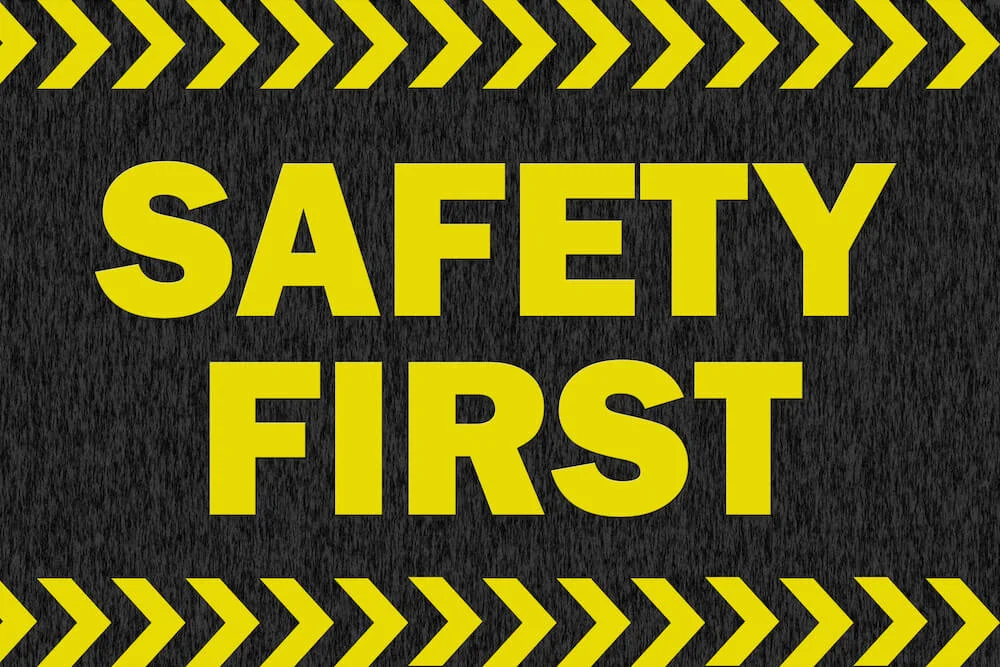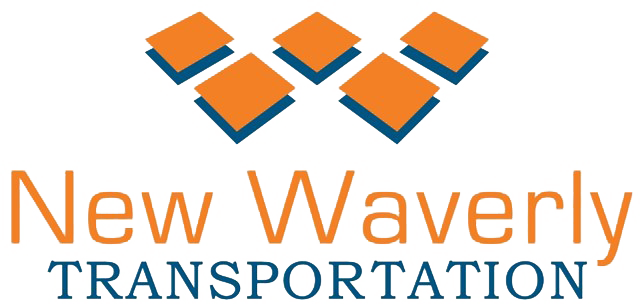








FMCSA Drug and Alcohol Clearinghouse Mandate
The new FMCSA Drug and Alcohol Clearinghouse will be going live on January 6th, 2020. The clearing house is designed to have drug and alcohol positive test results entered into the system by the motor carrier and the carrier's medical review officer (MRO) = Doctor. Motor carriers and MRO's are required by law to enter any positive results for drug and alcohol. In addition they are required to run queries in the system for any driver applicant and current drivers.
Under the FMCSA mandate, drivers must register in the clearing house and will be required to give permission to the clearinghouse to have a specific carrier pull a query. If a driver does not register and/or give permission for carriers to run the query, that driver must be removed from any Safety Sensitive Function (driving) until the query can be run. The query is at no cost to the driver, the company (NWT) will be required to pay $1.25 per query.
ALL driver leased to NWT MUST register in the Clearinghouse by January 6th 2020.
Please visit the attached link to register.
https://clearinghouse.fmcsa.dot.gov/
Any questions regarding this mandate may be address with our Safety and Compliance Department.




Happy Thanksgiving
NWT Offices will be closed Thursday and Friday in observance of Thanksgiving



Brake Safety week
CVSA Schedules Brake Safety Week for Mid-September
The Commercial Vehicle Safety Alliance’s Brake Safety Week, the annual brake-focused inspection event when enforcement officials throughout North America will conduct roadside safety inspections on commercial vehicles, has been scheduled for September 15 -22, 2019.
During Brake Safety Week, vehicles with critical brake violations or other critical vehicle inspection item violations, will be restricted from traveling until the violations are corrected. Vehicles that have passed inspection will receive a CVSA decal that reflects compliance.


CVSA’s Operation Safe Driver Week- Focus on Speeding!
Drivers’ actions contributed to a staggering 94 percent of all traffic crashes, according to the National Highway Traffic Safety Administration’s (NHTSA) 2015 Traffic Safety Facts report.
For these reasons, CVSA selected speeding as the emphasis area for this year’s Operation Safe Driver Week and law enforcement jurisdictions throughout North America.
In response to this issue, law enforcement personnel will be on the lookout for commercial motor vehicle drivers and passenger vehicle drivers engaging in dangerous driver behaviors July 14-20 as part of the Commercial Vehicle Safety Alliance’s (CVSA) Operation Safe Driver Week. Drivers engaging in unsafe driving behaviors will be pulled over by law enforcement and may be issued a warning and/or citation.
In 2017, speeding was a contributing factor in 26 percent of all traffic fatalities, according to NHTSA. That’s 9,717 lives lost due to speeding.
During last year’s Operation Safe Driver Week, 16,909 passenger vehicle drivers and 1,908 commercial motor vehicle drivers were issued citations for speeding. In addition, 17 commercial motor vehicle drivers and 714 passenger vehicle drivers were cited for driving too fast for the conditions.
According to the Insurance Institute for Highway Safety Highway Loss Data Institute, speeding has been a factor in more than a quarter of crash deaths since 2008.
According FMCSA’s 2016 Large Truck and Bus Facts, speeding of any kind was the most frequent driver-related crash factor for drivers of commercial motor vehicles and passenger vehicles.
“For more than two decades, speeding has been involved in nearly one-third of all motor vehicle fatalities,” said CVSA President Chief Jay Thompson with the Arkansas Highway Police. “That is unacceptable, especially because it’s preventable. We will continue to educate the public on the dangers of speeding and we will identify individuals who are speeding on our roadways and may issue citations as a deterrent to future speeding tendencies and to affect diver behavior.”
In addition to the emphasis on speeding, law enforcement personnel will be tracking other dangerous driver behaviors throughout Operation Safe Driver Week, such as distracted driving, texting, failure to use a seatbelt, following too closely, improper lane change, reckless or aggressive driving, failure to obey traffic control devices, evidence of drunk or drugged driving, etc.
A 2014 study, titled “Do Traffic Tickets Reduce Motor Vehicle Accidents? Evidence from a Natural Experiment,” investigated whether traffic violation enforcement actually reduces the number of motor vehicle crashes. The study’s author used one of the best-known enforcement programs, Click It or Ticket, which focuses on mandating seat belt use and ticketing violators. The study found that the Click It or Ticket campaign decreased motor vehicle crashes by roughly 11 percent and found that a 1 percent increase in citations issued led to a 0.28 percent decline in motor vehicle crashes. The ticketing campaign also reduced the number of non-fatal injuries from motor vehicle crashes.
“As unpopular as traffic citations are among drivers, we know that driver behavior does respond to contacts with law enforcement and warnings and citations,” said Chief Thompson. “Roadway safety is our top priority and this traffic enforcement initiative supports our goal of making sure everyone driving on our roadways is doing so safely.”
CVSA’s Operation Safe Driver Program was created to help to reduce the number of crashes, deaths and injuries involving large trucks, buses and passenger vehicles due to unsafe driving behaviors. Operation Safe Driver Week is sponsored by CVSA, in partnership with FMCSA and with support from industry and transportation safety organizations. The initiative aims to help improve the behavior of all drivers operating in an unsafe manner – either in or around commercial motor vehicles – through educational and traffic enforcement strategies to address individuals exhibiting high-risk driving behaviors.

Independance Day- 4th of July
NWT offices will be closed in observance of Independence Day

FMCSA Roadcheck-Emphasis on Steering and Suspension
FMCSA Roadcheck Set for June 4-6 With Emphasis on Steering and Suspension
The Commercial Vehicle Safety Alliance’s (CVSA) International Roadcheck will take place June 4-6. Over that 72-hour period, commercial motor vehicle inspectors in jurisdictions throughout North America will conduct inspections on commercial motor vehicles and drivers.
“Steering and suspension are safety critical systems for any commercial motor vehicle,” said CVSA President Chief Jay Thompson with the Arkansas Highway Police. “Not only do they support the heavy loads carried by trucks and buses, but they also help maintain stability and control under acceleration and braking, keeping the vehicle safely on the road. Furthermore, they keep tires in alignment, reducing chances of uneven tire wear and possible tire failure, and they maximize the contact between the tires and the road to provide steering stability and good handling.”
During International Roadcheck, CVSA-certified inspectors will primarily conduct the North American Standard Level I Inspection, a 37-step procedure that includes an examination of driver operating requirements and vehicle mechanical fitness. Inspectors may opt to conduct the Level II Walk-Around Driver/Vehicle Inspection, Level III Driver/Credential/Administrative Inspection or Level V Vehicle-Only Inspection.
The vehicle inspection includes checking critical inspection items such as: brake systems; cargo securement; coupling devices; driveline/driveshaft; driver’s seat (missing); exhaust systems; frames; fuel systems; lighting devices (headlamps, tail lamps, stop lamps, turn signals and lamps/flags on projecting loads); steering mechanisms; suspensions; tires; van and open-top trailer bodies; wheels, rims and hubs; windshield wipers. Additional items on buses, motorcoaches, passenger vans or other passenger-carrying vehicles include emergency exits, electrical cables and systems in engine and battery compartments, and seating (temporary and aisle seats).
International Roadcheck is the largest targeted enforcement program on commercial motor vehicles in the world, with around 17 trucks and buses inspected, on average, every minute in Canada, the United States and Mexico during a 72-hour period. Since its inception in 1988, more than 1.6 million roadside inspections have been conducted during International Roadcheck campaigns.



St. Patrick's Day
Saint Patrick's Day, or the Feast of Saint Patrick, is a cultural and religious celebration held on 17 March, the traditional death date of Saint Patrick, the foremost patron saint of Ireland.

President's Day
George Washington was born in Westmoreland County in Colonial Virginia to Augustine Washington and Mary Ball Washington. At the time George Washington was born, the Julian calendar was used throughout the land. Using the Julian calendar, George Washington’s date of birth was noted as February 11, 1731. When the calendar was updated to the Gregorian calendar in 1752, George’s birth date was moved to February 22, 1732.
Abraham Lincoln was born on February 12, 1809 in Hardin County, Kentucky. His parents were Thomas Lincoln and Nancy Hanks Lincoln. The nation celebrated Abraham’s birthday as a holiday on February 12th of every year until 1971 when the nation no longer observed separate holidays for each president.

